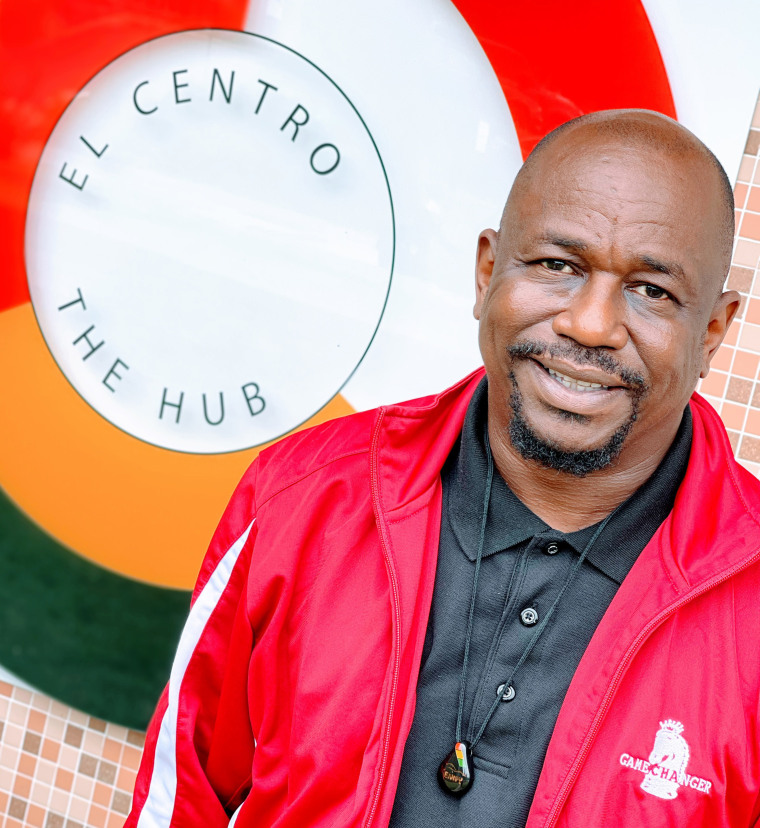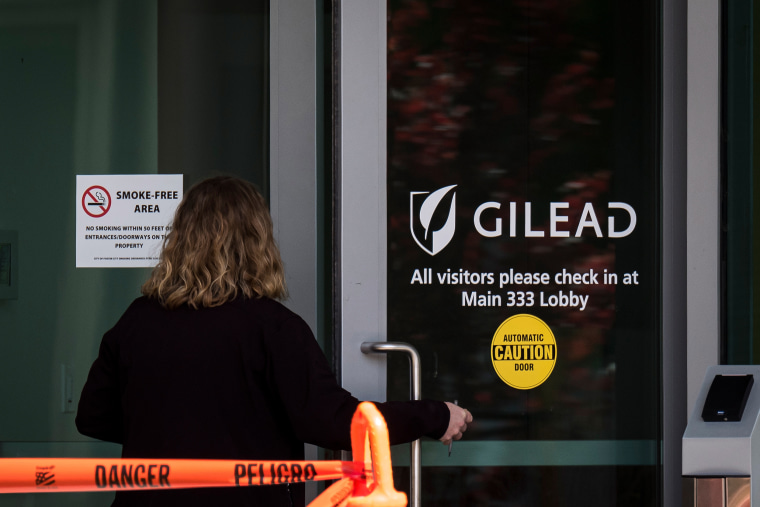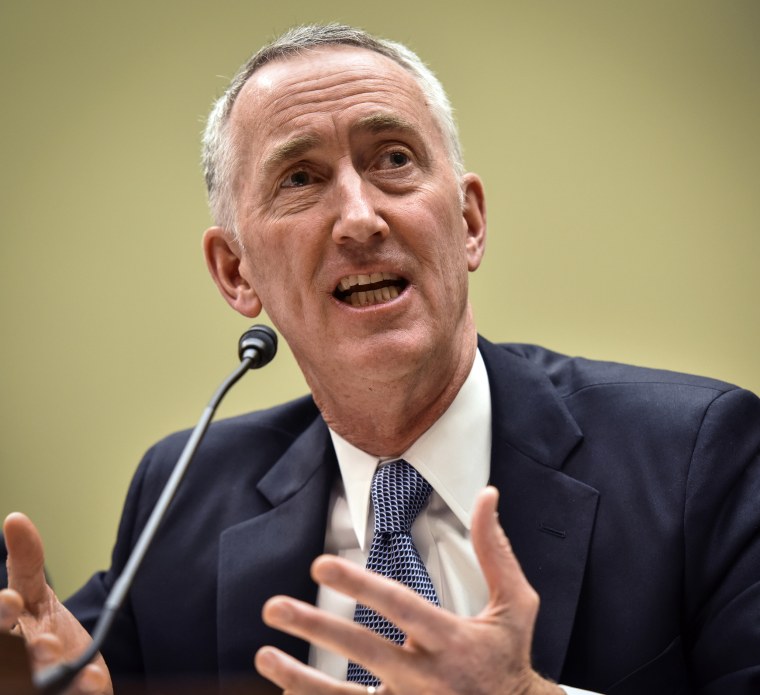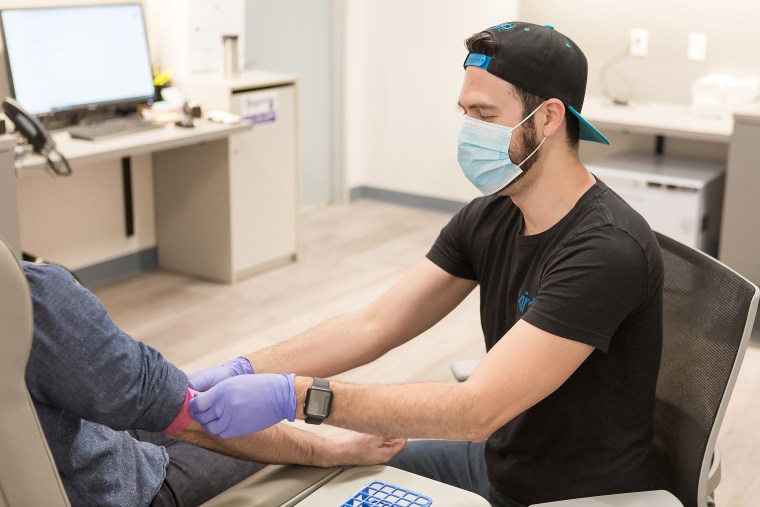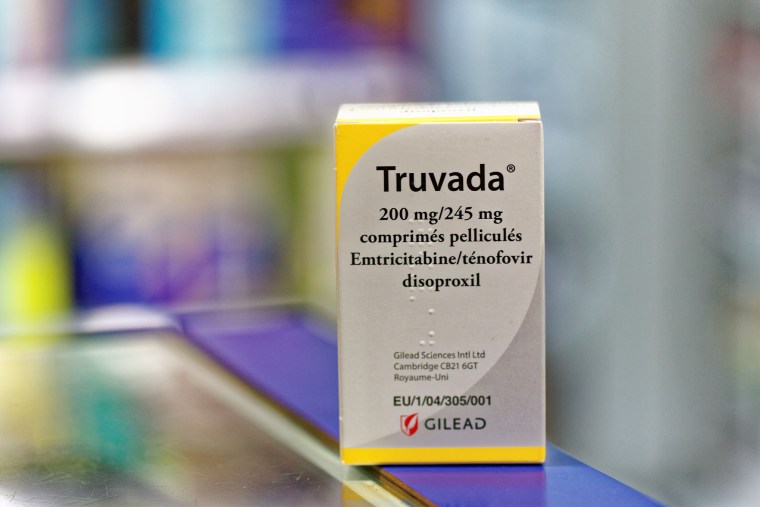Advocates criticize Biden for inaction after judge orders military to accept recruits with HIV
Several people living with HIV told NBC News they have been turned away from military service or have faced roadblocks to enlistment, despite a federal judge’s ruling in August that found prohibiting healthy HIV-positive recruits is unconstitutional.
Now, as Joe Biden’s presidency reaches its final days, advocates for people with HIV are increasingly concerned that his administration will not fully implement the judge’s ruling, punting it to the incoming Trump administration.
The Americans with Disabilities Act of 1990 has barred employment discrimination based on HIV status for decades. The Defense Department, which employs nearly 3 million people, has remained the one exception, given the military does not fall under the purview of the ADA.
Rep. Mike Quigley, D-Ill., told NBC News he found the White House’s lack of initiative in the matter “very disappointing. The opportunity was handed to this administration on a silver platter.”
On Aug. 20, a federal district court judge struck down the military’s prohibition on letting people with HIV enlist, ruling that it violated the equal protection clause of the Constitution. The judge found that excluding those who maintain undetectable HIV viral loads and are asymptomatic thanks to effective treatment was “irrational, arbitrary and capricious.”
The Defense Department on Oct. 18 instructed its branches in an internal memo, which NBC News has reviewed, to adhere to the legal decision, imposing a “temporary” yet open-ended “exception” to the long-standing enlistment prohibition. The same day, the Justice Department filed initial paperwork to appeal the August ruling with the 4th U.S. Circuit Court of Appeals, though the judge’s ruling remains in effect.
Multiple sources said military recruiters have, at least in several cases, not followed the Defense Department’s directive.
NBC News spoke with three men with HIV who described their recent experiences trying to enlist. One said the military told him he was permanently disqualified, and two others said they remained in bureaucratic limbo because of their HIV statuses.
One of the latter two men said a recruiter told him as recently as Tuesday that his HIV status prompted a medical disqualification in his application that would have to be removed before he could move forward. Each of the men spoke under the condition that their names would not be published to protect their medical privacy.
Scott Schoettes is one of the attorneys representing the three HIV-positive plaintiffs who successfully sued to overturn the military enlistment policy. He said he and his colleagues are concerned that, with only days left in the Biden administration and the matter unresolved, Donald Trump’s Justice Department will wind up inheriting the legal baton and will carry out the appeal of the judge’s decision.
Army Lt. Nick Harrison — the plaintiff in a previous federal lawsuit about the potential roles of currently serving HIV-positive service members — is a first lieutenant in the Washington, D.C., Army National Guard who works as a defense attorney for service members. Harrison said he has been in direct contact with two of the HIV-positive men who spoke with NBC News, and he said at least eight other people with HIV have recently reported encountering obstacles to enlistment in a private Facebook group about HIV-related matters in the military (Harrison declined to provide screenshots of the posts, citing the posters’ medical privacy).

Harrison, who noted that he was not speaking on behalf of the National Guard, said that based on what he has heard from HIV-positive recruits, both directly and through the private Facebook group, it appears there is a lack of clear guidance about the HIV enlistment policy making its way to at least some military recruiters. He described that as a “failure of the higher command, because they should be pushing it down” the chain of command. He said he had raised the issue with an assistant secretary in the Defense Department and urged this person to act to resolve the bureaucratic quagmire.
“The assistant secretary didn’t do anything,” Harrison said.
He noted that the Biden Justice Department could have closed the door on Trump’s opportunity to appeal the August ruling. First it would have had to alert Congress at least 30 days before the end of Biden’s term that it intended to withdraw the appeal. Without unlikely intervention by Congress, that would have meant he department could have completed the withdrawal process before Biden left office.
“It’s a little too late for that now,” Harrison said.
Dallas Ducar, an executive overseeing policy at Fenway Health, a leading LGBTQ health center in Boston, said the Biden administration’s “inaction contradicts the administration’s stated commitment to equity and public health.”
The White House did not reply to requests for comment. The Defense Department said it could not comment on ongoing litigation, and the Justice Department declined to comment. The Trump transition team did not respond to a request for comment, including a question regarding whether the forthcoming administration intended to carry through with the appeal.
‘Permanently disqualified’
An HIV-positive man told NBC News that after he heard about the August ruling, he sought in September to enlist in the National Guard through a recruitment office in South Carolina. The man said he disclosed upfront to the recruiters that he had HIV and said they assured him that it would be no impediment.
But when he then attended an informational slideshow presentation at a Military Entrance Processing Station, he said, the text on one slide stood out: “Absolutely no HIV.” Ultimately, he said, a recruiter who had looked into the matter told him that having the virus did, in fact, preclude him from enlisting, writing in an email reviewed by NBC News that he was “permanently disqualified.”
“There was some communications that led me to believe HIV positive still might have a chance to join so I am sorry I got your hopes up,” the recruiter wrote.
The HIV-positive man, who was not a part of the lawsuit that prompted the injunction against the ban, told NBC News: “I just want the opportunity to give back and serve my country. It’s just the values that were instilled in me by my parents and grandparents.”
Asked about the reported experience of the HIV-positive man, Maj. Karla Evans, a public affairs representative for the South Carolina National Guard, confirmed that the “information you were given by the person you spoke with is correct.” She said, “In September 2024, he would not have met the standards of medical fitness.”
Despite having been told that the HIV-positive man received his final rejection email from the recruiter the first week of December, Evans pointed to the bureaucratic process that, under the October memorandum, would hear requests for entry by people with HIV.
Schoettes said that because the district court’s permanent injunction against the exclusionary HIV enlistment policy has been in effect since August, the military would be violating the injunction if it forbade the South Carolina man from enlistment based on his HIV status.
Fit to serve with HIV
For nearly three decades, HIV has been treatable with antiretroviral medications. Today, most people with the virus require only a single daily pill. People on effective HIV treatment are considered essentially healthy and have a life expectancy approaching normal. Robust research has indicated that when HIV is well suppressed by treatment, it is essentially impossible to transmit.
On Sept. 13, Quigley and 22 other Democratic House members sent a letter urging Defense Secretary Lloyd Austin to direct the Defense Department to update its enlistment policy to allow entry to people with HIV.
Calling the ruling “long overdue,” the letter echoes the judge’s words by saying the enlistment ban is “not grounded in modern science, and it perpetuates unjust stigma against people with HIV.” It says thousands of people with HIV serve in the U.S. armed forces without incident.
“There is no evidence that these service members have faced complications from their disease, nor that there is any risk of battlefield transmission,” it says. It further asserts that rejecting HIV-positive recruits “diminishes the strength of the U.S. military.”
While enlistment across the armed services branches increased by 12.5% from 2023 to 2024, from 200,000 to 225,000, the military still failed to meet its recruitment goals for the past two years.
In April 2022, a federal judge struck down a Defense Department policy that forbade people who had contracted HIV after they entered the military from deployment or being commissioned as officers. Austin then directed the military to comply with the ruling, and, in contrast to the current scenario, the Justice Department withdrew its appeal.
HIV advocates had hoped the Biden administration would observe a similar pattern following the August judgment about enlistments. That, however, has not been the case. The Justice Department requested an extension for its first brief in the appeal, which moved the deadline back from Dec. 23 to Feb. 21, a month after Trump’s inauguration.
Asked how she believed the Trump administration might handle the appeal, Rep. Sara Jacobs, D-Calif., who signed the letter to Austin, said: “We know that Donald Trump is going to take aim at the LGBTQ+ community, and in fact, has even said part of his day one agenda was a trans military ban.”
The ban on HIV-positive recruits affects gay and bisexual men in particular, given they are about two-thirds of the approximately 1.24 million people in the United States living with HIV.
“Hopefully, in the closing days and hours, the administration can get this done,” said Quigley, referring to his hope for more exacting guidance on how military recruiters should implement a policy permitting enlistment by people with HIV and the withdrawal of the appeal. “But obviously, it’s not looking good at this point in time,” Quigley said. “To those who want to serve, my message to them is: Thank you. Don’t give up. We’re not going to give up.”
